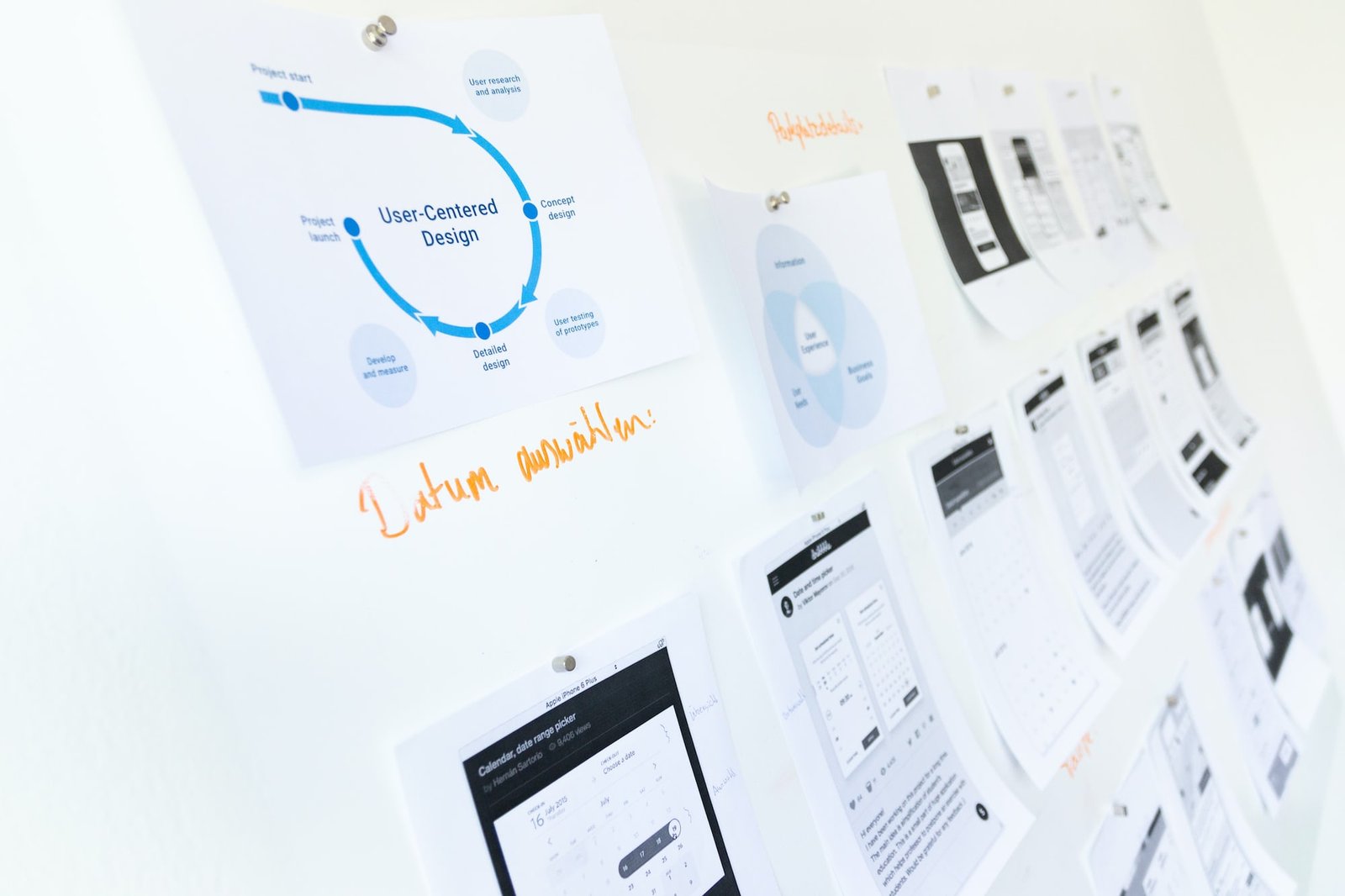Comparing WordPress and Drupal: Choosing the Ideal CMS

Introduction
In the ever-evolving world of website design and development, choosing the right content management system (CMS) is crucial for the success of any small business. Among the numerous options available, WordPress and Drupal have emerged as two popular CMS platforms, each with its own set of features and advantages. As a professional website designer specializing in WordPress solutions for small businesses, I understand the importance of selecting the ideal CMS that meets the specific needs and goals of a business. In this blog post, we will delve into a comprehensive comparison of WordPress and Drupal, exploring their key differences, functionalities, ease of use, customizability, and more. By the end, you’ll have a better understanding of which CMS is the perfect fit for your small business. So, let’s dive in and discover the ideal CMS solution for you.
WordPress: The Powerhouse CMS for Small Businesses
WordPress has gained immense popularity over the years and now powers over 40% of all websites on the internet. This CMS offers a user-friendly interface, a vast range of themes and plugins, and extensive community support, making it an ideal choice for small businesses. Let’s explore some of the key features and advantages of WordPress in more detail.
Easy Installation and Setup
One of the biggest advantages of WordPress is its easy installation and setup process. Most web hosting providers offer one-click WordPress installations, allowing you to set up your website within minutes. Additionally, WordPress provides a user-friendly setup wizard that guides you through the initial configuration, making it accessible even for beginners.
Huge Selection of Themes and Plugins
WordPress boasts a massive collection of themes and plugins that can transform your website into a unique and functional online presence. With thousands of free and premium themes available, you can easily find a design that aligns with your brand and appeals to your target audience. Moreover, the extensive plugin directory offers a plethora of functionalities, enabling you to add features like contact forms, e-commerce capabilities, social media integration, and much more.
Intuitive User Interface
WordPress’s user interface is designed to be intuitive and straightforward, ensuring that users of all skill levels can navigate and manage their websites with ease. The dashboard provides a centralized hub for content creation, customization, and site management, allowing you to effortlessly update your website’s pages, publish blog posts, and make necessary modifications.
SEO-Friendly Architecture
In today’s competitive online landscape, search engine optimization (SEO) plays a crucial role in driving organic traffic to your website. WordPress excels in this aspect, offering built-in features and plugins that facilitate SEO optimization. From customizable permalinks to XML sitemaps, WordPress provides the necessary tools to optimize your website’s visibility in search engine results.
Strong Community Support
WordPress benefits from a vast and active community of developers, designers, and users who contribute to its continuous improvement. This community support ensures that you can find answers to your questions, seek guidance, and access a wealth of resources to enhance your WordPress website. Whether you need assistance with troubleshooting, plugin recommendations, or design inspiration, the WordPress community is always there to lend a helping hand.
Drupal: The Robust CMS for Scalability and Advanced Functionality
While WordPress is widely regarded as the go-to CMS for small businesses, Drupal shines when it comes to scalability and advanced functionality. Designed for complex and high-traffic websites, Drupal offers a robust framework that empowers businesses with unique requirements. Let’s delve into the key features and advantages of Drupal in more detail.
Scalability and Performance
One of Drupal’s standout features is its ability to handle large-scale and high-traffic websites with ease. Whether you’re managing a content-heavy platform or an e-commerce website with thousands of products, Drupal’s architecture ensures optimal performance and scalability. Its modular structure allows for efficient management of content and enables seamless expansion as your business grows.
Advanced Customization and Flexibility
For businesses that require extensive customization and flexibility, Drupal provides a powerful set of tools and features. Its modular architecture allows developers to create custom content types, fields, and workflows tailored to specific business needs. With Drupal, you have complete control over the design and functionality of your website, ensuring a unique online presence.
Robust Security and Access Control
Drupal prioritizes security and offers robust built-in features for protecting your website and user data. With frequent security updates, vulnerability scans, and a dedicated security team, Drupal takes proactive measures to safeguard your website from potential threats. Additionally, Drupal provides granular access control, allowing you to define user roles and permissions, ensuring that only authorized individuals can access sensitive areas of your website.
Multilingual Capabilities
For businesses that operate in multiple countries or cater to a diverse audience, Drupal’s multilingual capabilities are a significant advantage. The CMS provides built-in translation management tools, making it seamless to create and manage multilingual content. Whether you need to translate your entire website or specific sections, Drupal’s multilingual support simplifies the process and enhances the user experience for global audiences.
Extensive API Integrations
Drupal’s robust architecture and extensive API support make it an excellent choice for businesses that rely on third-party integrations. Whether you need to connect your website with CRM systems, marketing automation tools, or other business applications, Drupal offers a seamless integration experience. Its API-first approach ensures compatibility with a wide range of external systems, facilitating smooth data exchange and enhancing overall business efficiency.
Comparing WordPress and Drupal: Choosing the Ideal CMS
Now that we’ve explored the key features and advantages of both WordPress and Drupal, let’s compare them side by side to help you make an informed decision about the ideal CMS for your small business. The following table highlights the key differences between WordPress and Drupal in various aspects:
| Aspect | WordPress | Drupal |
|---|---|---|
| Ease of Use | User-friendly interface with intuitive navigation and setup process | Steeper learning curve, more suitable for developers and tech-savvy users |
| Customizability | Vast selection of themes and plugins for easy customization | Highly customizable with extensive development capabilities |
| Scalability | Best suited for small to medium-sized websites | Ideal for large-scale and complex websites |
| Performance | May experience performance issues with extensive plugins and high traffic | Optimized for performance and scalability |
| Community Support | Extensive community support with abundant resources and documentation | Active community with comprehensive support and resources |
| Security | Regular updates and plugins available for enhanced security | Robust security features and proactive vulnerability management |
| Multilingual Capabilities | Basic multilingual features with plugins available for translation | Built-in multilingual capabilities for seamless content management |
| API Integrations | Wide range of plugins and integrations available | Extensive API support for seamless third-party integrations |
It’s essential to consider your specific business needs, goals, and available resources when choosing between WordPress and Drupal. If you prioritize ease of use, a vast selection of themes and plugins, and a strong community support system, WordPress may be the ideal choice for your small business. On the other hand, if you require advanced customization, scalability, multilingual capabilities, and enhanced security, Drupal may better suit your requirements. Assessing your unique needs and considering the long-term growth and goals of your business will help you make an informed decision.
FAQs about WordPress and Drupal
Q: Is WordPress suitable for large-scale websites?
A: While WordPress is primarily known for its suitability for small to medium-sized websites, it can also handle large-scale websites with proper optimization and management. However, for extremely complex and high-traffic websites, Drupal may be a more suitable choice due to its robust architecture and scalability features.
Q: Can I migrate my existing Drupal website to WordPress?
A: Yes, it is possible to migrate your existing Drupal website to WordPress. However, it requires careful planning, data migration, and rebuilding of certain functionalities. It is recommended to seek the assistance of a professional website designer or developer to ensure a smooth and seamless migration process.
Q: Are there limitations to customization with WordPress?
A: While WordPress offers a vast selection of themes and plugins for customization, there may be certain limitations depending on your specific requirements. However, with the help of custom development and coding, you can achieve extensive customization and tailor your WordPress website to your exact needs.
Q: Can I switch between WordPress and Drupal in the future?
A: Switching between WordPress and Drupal can be a complex process, especially if you have an established website with extensive content and functionality. It is recommended to thoroughly evaluate your CMS requirements and make an informed decision to avoid the complexities of future migrations.
Conclusion
Choosing the ideal CMS for your small business is a crucial decision that can significantly impact your online presence and success. WordPress and Drupal stand out as two powerful CMS platforms, each offering unique features and advantages. WordPress excels in user-friendly interface, extensive themes and plugins, and a vibrant community, making it an excellent choice for small businesses. On the other hand, Drupal shines in scalability, advanced customization, and robust security features, catering to businesses with complex requirements. By considering your specific needs, goals, and available resources, you can make an informed decision and select the perfect CMS that aligns with your business vision. Remember, whether you choose WordPress or Drupal, investing in professional website design and development services will ensure the optimal utilization of your chosen CMS and help you create a stunning online presence that sets your business apart from the competition.


